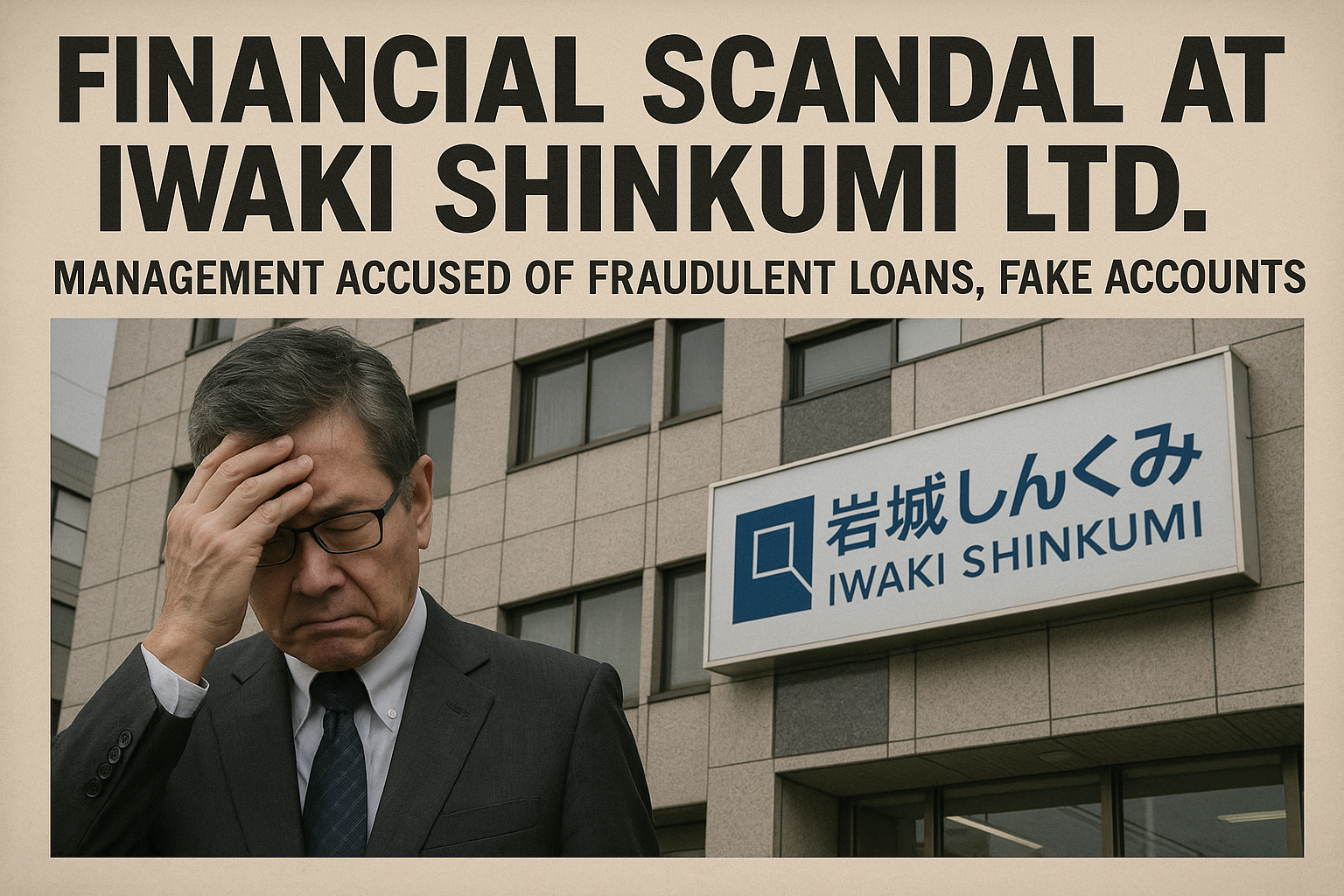Uncovering the Iwaki Shinkumi Fraud Scandal: Essential Takeaways for US Credit Union Leaders on Risk and Governance
Major Fraud Scandal at Iwaki Shinkumi Ltd.: Lessons for U.S. Credit Union Leaders
A developing scandal at Iwaki Shinkumi Ltd., a credit union based in Iwaki, Fukushima Prefecture, has sent shock waves across Japan’s financial industry. Recent investigations reveal that the institution’s management allegedly used the identities of depositors—including deceased clients—to create fictitious accounts and approve fake loans, all in an apparent effort to hide severe financial distress. As U.S.-based credit union executives, understanding the fraud’s structure, impact, and regulatory response offers vital lessons on risk management, governance, and regulatory compliance.
The Alleged Scheme: Exploiting Trust and Systems
According to information obtained by The Asahi Shimbun, suspicions around Iwaki Shinkumi’s activities surfaced in late 2024, prompting depositors to petition the courts to preserve evidence. Investigators discovered a scheme involving about 90 fictitious accounts with an aggregate loan balance exceeding 1.7 billion yen (more than $11 million USD). The fraudulent accounts were opened using the names and genuine personal information of real depositors—some of whom were unaware of their involvement, and at least one of whom had died in 2009. For these accounts, staff forged signatures and created unauthorized personal seals, bypassing standard loan approval protocols and documentation requirements.
The alleged fraud included fabricating entire loan files, including applications, promissory notes, and mandatory identity verification documents. In some cases, forged documents claimed borrowers had undergone interviews at branches they had never visited. The Asahi Shimbun reports that in one particularly egregious case, a deceased client was listed as taking out a loan of nearly 40 million yen in 2024, fifteen years after his death.
Concealing Financial Distress Through Bogus Loans
The underlying motive, according to industry sources, was to conceal Iwaki Shinkumi’s growing nonperforming loan portfolio. Rather than recognizing and provisioning for bad debts as required under standard accounting and regulatory rules, the credit union reportedly used its internal “B funds” to cycle cash through the fictitious loans, covering up delinquencies by large clients without tapping its designated reserves. This strategy allowed the institution to present a stable financial image, masking deterioration for at least a decade. The Financial Services Agency of Japan is now conducting a formal investigation into what experts describe as an “extremely unusual” and elaborate ruse among financial institutions in the country.
Governance Failures and Red Flags
The exposure of these fraudulent activities highlights stark governance lapses and persistent manipulation of operational controls. Investigators preserved not only documents but also approximately 90 personal seals, critical in the Japanese banking system for authorizing accounts and contracts. The credit union’s systems allowed unauthorized staff to fabricate accounts and loan documents without proper oversight or secondary verification. Additionally, victims, including both living and deceased depositors, confirm they neither applied for new loans nor authorized any seals—the fundamental controls meant to protect both the institution and its members had failed.
The Broader Impact: Trust, Regulation, and Industry Response
Credit unions in Japan, as in the United States, are community-based and not-for-profit financial institutions, designed to serve small businesses and individual members. Iwaki Shinkumi, founded in 1948 and commonly known as “Iwashin,” operated 15 branches with over 41,000 members and nearly $1.5 billion in combined deposit and loan balances as of March 2025. The revelation of such systematic fraud threatens not only the depositors’ trust in the institution but could also ripple through the broader cooperative banking sector if confidence is shaken.
In response, a third-party committee began investigating the extent of the misconduct after the credit union itself admitted, in November 2024, that previous management had been involved in improperly issuing “indirect loans” to large businesses under individual members’ names. The Financial Services Agency is expected to intensify scrutiny, mirroring risk resolution and depositor protection activities performed in Japan by organizations like the Deposit Insurance Corporation of Japan, which exists to safeguard the financial system in the event of institutional failures.
Implications and Lessons for U.S. Credit Union Executives
The Iwaki Shinkumi case serves as a cautionary tale for U.S. credit unions in several key areas:
- Internal Controls and Dual Verification: The lack of effective checks and balances enabled unauthorized account creation and loan origination. Implementing robust dual-control processes for account openings, loan approvals, and changes to member identity documentation is essential.
- Member Communication and Consent: Real-time notifications to members about new accounts or loan applications can serve as an early warning system for fraudulent activity. Digital channel integration, two-factor authentication, and e-signature verification provide important additional safeguards.
- Board Oversight and Whistleblower Protections: Regular independent audits and a transparent process for staff or members to report irregularities can identify misconduct before it escalates. Boards should ensure strong oversight and empower compliance functions to challenge management decisions when red flags emerge.
- Regulatory Readiness: U.S. credit unions should maintain proactive dialogue with regulators, mirroring the type of scrutiny now facing Iwaki Shinkumi from Japan’s Financial Services Agency. Clear, timely reporting of nonperforming loans and accurate reserve provisioning are both legal requirements and risk management best practices.
- Fraud Risk Culture: Ongoing staff training on fraud prevention, member identity protection, and regulatory obligations helps foster a culture of vigilance. Technology can help, but tone at the top and ethical leadership are equally critical.
Conclusion: A Wake-up Call for Cooperative Financial Institutions
The Iwaki Shinkumi Ltd. scandal underscores the unique vulnerabilities that can arise when trusted institutions neglect to enforce basic controls and transparency. For U.S. credit unions, the episode is a powerful reminder that the trust of members is a precious asset, earned through diligent governance, operational integrity, and an unwavering commitment to regulatory compliance.


